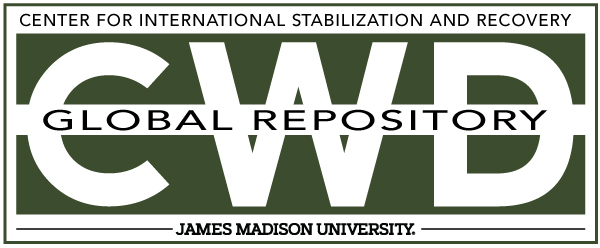Document Type
Article
Creative Commons License

This work is licensed under a Creative Commons Attribution-Noncommercial-No Derivative Works 4.0 License.
Publication Date
Summer 6-2018
Keywords
ERW Clearance, GICHD, Cambodia
Abstract
In post-conflict countries, there will always be some risk from residual ERW threats when construction is undertaken, as witnessed by ongoing efforts to manage risk from UXO in Europe. Investing in Infrastructure (3i)6 is a development project funded by Australia’s Department of Foreign Affairs and Trade (DFAT) and managed by Palladium International, to provide support for the development of small-scale infrastructure in Cambodia. It is a private-public partnership that seeks to incentivise the Cambodian private sector in the provision of such infrastructure, through the provision of “output-based grants, currently for the provision of electricity and drinking water networks.
3i took the view that to be a responsible partner in the construction of the networks, it needed to assure both itself and DFAT, that everything reasonable and practicable had been done to reduce the risks from ERW threats, to which the operator and their workers were exposed in the course of constructing their networks, demonstrating the concept of “all reasonable effort”.
This GICHD study presents the ERW risk management policy, and the management model that has grown from this, as an innovative attempt to adopt good practice approaches to address residual landmines and ERW in Cambodia. Although lessons are still being learned in real time, the risk approach adopted has proven a cost-effective and efficient method that makes sense of risk in a logical and systematic way, including:
- Lessons involving good practice risk management when implementing infrastructure projects in areas with residual ERW threats;
- More generalised lessons, insights and reflections about the state of Cambodian mine action, as the period of proactive programming, that has characterised the sector since the early 1990s, starts to enter its final period in the run-up to 2025.
Included in
Defense and Security Studies Commons, Peace and Conflict Studies Commons, Public Policy Commons, Social Policy Commons



